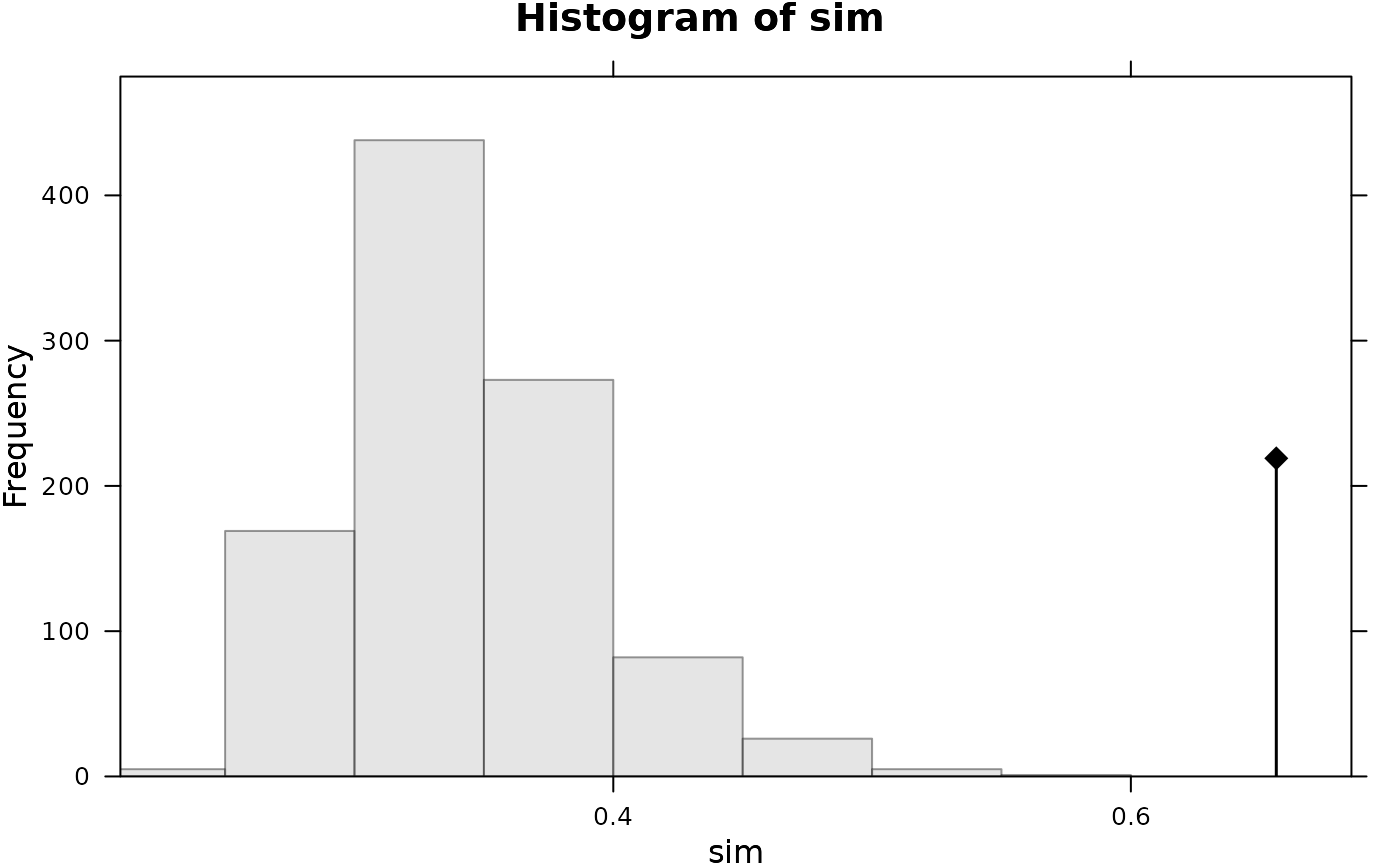Monte-Carlo Test on the sum of the singular values of a procustean rotation (in R).
procuste.rtest.Rdperforms a Monte-Carlo Test on the sum of the singular values of a procustean rotation.
References
Jackson, D.A. (1995) PROTEST: a PROcustean randomization TEST of community environment concordance. Ecosciences, 2, 297–303.
Author
Daniel Chessel
Anne-Béatrice Dufour anne-beatrice.dufour@univ-lyon1.fr
Examples
data(doubs)
pca1 <- dudi.pca(doubs$env, scal = TRUE, scann = FALSE)
pca2 <- dudi.pca(doubs$fish, scal = FALSE, scann = FALSE)
proc1 <- procuste(pca1$tab, pca2$tab)
protest1 <- procuste.rtest(pca1$tab, pca2$tab, 999)
protest1
#> Monte-Carlo test
#> Call: procuste.rtest(df1 = pca1$tab, df2 = pca2$tab, nrepet = 999)
#>
#> Observation: 0.6562
#>
#> Based on 999 replicates
#> Simulated p-value: 0.001
#> Alternative hypothesis: greater
#>
#> Std.Obs Expectation Variance
#> 6.552568740 0.342274191 0.002295254
plot(protest1)
